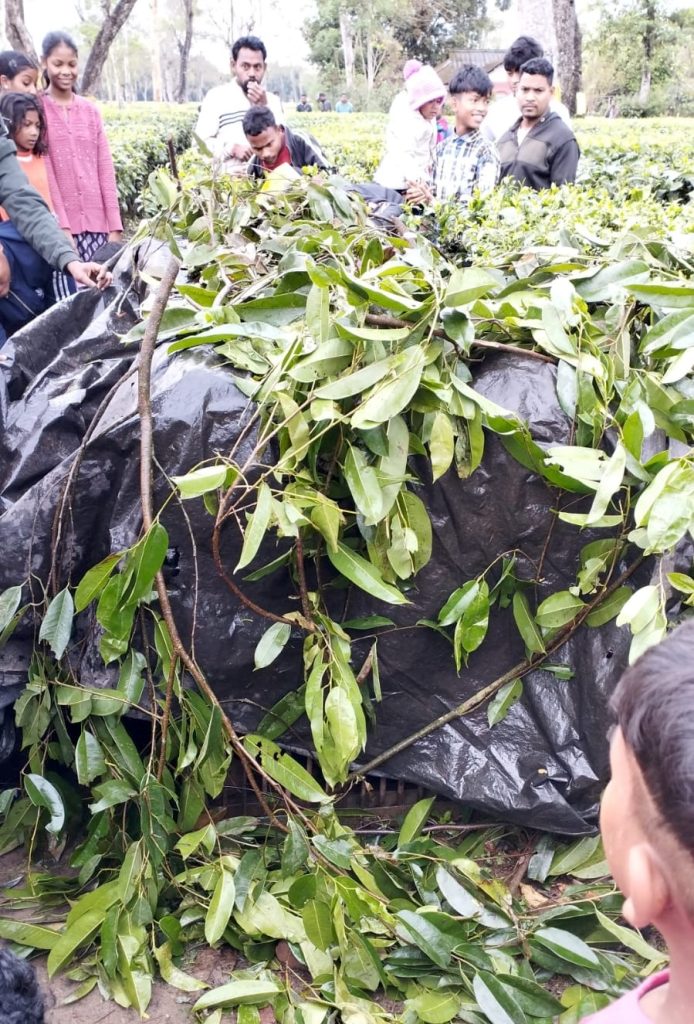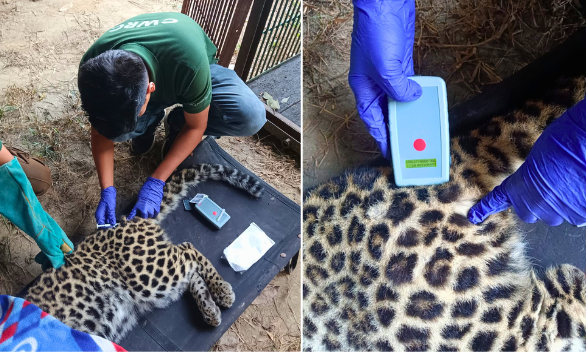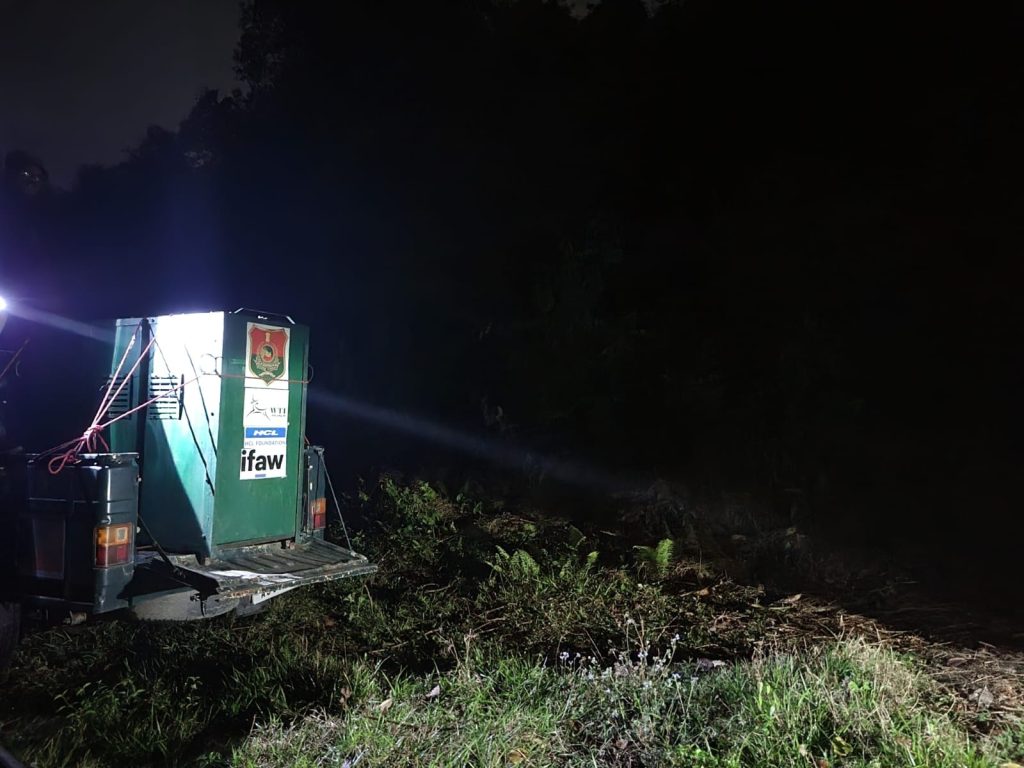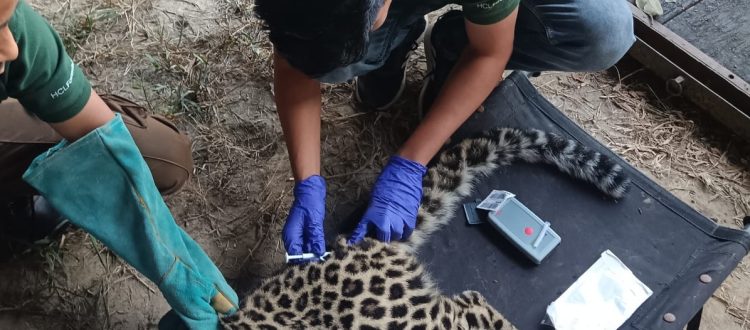Leopard ventures into Dinjan tea estate, Assam forest department & WTI rushes to the rescue
Assam, 25th March 2024: March marks the onset of the tea harvest season in the state of Assam, a time when the workers and management at tea estates often end up encountering leopards. Unfortunately, the loss of habitat and increased human activity and development have led wild animals, like leopards to inhabit the changing landscapes, such as tea estates, which were created by clearing the natural vegetation adjoining forested areas. However, repeated incidents of livestock predation and occasional human injuries may lead to reduced tolerance and an increase in conflicts. Since 2002, over 120 adult and sub-adult leopards have been admitted and treated for injuries sustained during capture and confinement by the Centre for Wildlife Rehabilitation and Conservation (CWRC) and its satellite stations operating throughout Assam.

The forest department set up a trap cage for the leopard | Photo by Team WTI
In an incident where, the workers in Dinjan tea estate, located in the Tinksukia district of Assam, were left in a state of shock upon finding a leopard in their midst. Fearing for their safety as there have been incidents of livestock predation in the past, the workers immediately alerted the Forest Department and a team was dispatched to set up a trap cage in the area, to prevent potential conflict. After a few days, the workers noticed that the trap had been triggered and immediately informed the Forest Department, who in turn, contacted WTI’s Eastern Assam mobile veterinary service station located within the Guijan range office of Dibru-Saikhowa National Park.

Following a detailed health examination conducted by the WTI veterinarian, a microchip ID was implanted on the leopard | Photo by Team WTI
The team quickly responded to the situation, ensuring the safety of the people and the adult male leopard that was captured. The big cat was then transported to a secure location for a health examination. The CWRC veterinarian also implanted a microchip for identification purposes of the individual leopard, which is a permanent coded marker akin to an Aadhar number. In the event that the animal is recaptured or rescued in the future, the Forest Department will be able to identify it by the unique identification code, fostering a better understanding of the animal, its range and pattern, thus providing valuable insights for a more informed decision making towards capture and relocation of conflict leopards.

The leopard was safely transported in a secure carrier and released back into the wild| Photo by Team WTI
WTI, in collaboration with the HCL Foundation, is working to resolve conflicts between humans and leopards in the tea estates of eastern Assam. WTI is also exploring ways to engage different stakeholders, including tea estate management, the local community and the forest department, to scientifically manage the problem.
Over the last two years, WTI has been organising workshops to understand the community perspective and promote a practical approach in line with the guidelines of the Govt of India, MOEFCC. WTI is also working to sensitise communities and raise awareness about leopard behaviour, as well as avoidance techniques to mitigate conflict. Capturing and relocating leopards is not a long-term solution to managing such situations.
As an initial step, WTI has been assisting the Assam Forest Department in conducting thorough health checks on all trapped leopards and implanting individual ID microchips before releasing them. This will help manage conflicts and ensure the safety of both people and leopards in the area.









